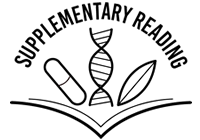Phenylethylamine (PEA)
Also known as: Phenethylamine, Acacia rigidula
Safety Rating:
|
LIKELY HARMFUL
|
|
NOT ENOUGH INFO
|
|
POSSIBLY UNSAFE
|
|
POSSIBLY SAFE
|
|
LIKELY SAFE
|
For explanations of what these safety ratings mean, click here.
Potential Side effects
Anxiety
Agitation
Delusions/Hallucinations in patients with schizophrenia
High blood pressure
Insomnia (trouble sleeping)
Loss of appetite
Mania in patients with Bipolar disorder
Raynaud phenomenon (fingers/toes turn white or blue)
Tachycardia (rapid heart beat)
Overview
What is it? PEA is a stimulant that is metabolized into N-Methylphenethylamine, which is an isomer (molecule with the same building blocks but slightly different structure) of Amphetamine.
Why is it used? Stimulants that mimic Amphetamine are often used in supplements that claim to “promote weight loss”, “increase energy”, or “increase focus”. It is sometimes promoted as “a more natural alternative to Adderall”.
What’s the harm?
- There is very little research done on the safety of PEA, and it is not strictly regulated like prescription ADHD medications. Because of this, there is a higher chance of patients unknowingly taking large amounts and suffering dangerous side effects. The risks are even higher if PEA is taken along with other stimulants, such as caffeine.
- Because it gets metabolized into an Amphetamine isomer, PEA may cause a positive drug test result for Amphetamines depending on the sensitivity of the test.
Interactions with health conditions
ADHD: May cause or increase side effects from ADHD medications.
Diabetes:
- Appetite suppression may make blood sugar more difficult to control.
- Increased blood pressure could worsen conditions like diabetic neuropathy.
Eating Disorders:
- Patients with a history of disordered eating are at higher risk of heart problems when taking PEA.
- Appetite suppression from PEA my trigger a relapse into disordered eating, or worsen existing disordered eating.
Heart problems:
- May increase blood pressure
- May increase heart rate
Insomnia: Could cause insomnia or make it worse.
Kidney Disease: PEA can raise your blood pressure, which can weaken the blood vessels to the kidneys, damaging them. Damaged kidneys will not be able to properly filter blood, which can lead to rising levels of toxins in the body. For more information on kidney damage, click here.
Mental Health: PEA could increase levels of neurotransmitters (chemical brain messengers) like serotonin and dopamine. If the levels become imbalanced it could worsen existing mental health symptoms or cause new ones. Some specific examples include:
- Increase risk of mania in bipolar disorder
- In patients with schizophrenia, PEA could cause
- Hallucination: seeing and/or hearing things that do not exist
- Delusion: false beliefs that are not rooted in reality
Surgery: PEA could interfere with surgery because it may effect the central nervous system. or blood vessels (tightening or relaxing them depending on many factors).
Drug Interactions
ADHD medications: Taking PEA with ADHD medications can increase side effects such as insomnia, high blood pressure, and loss of appetite.
Blood Pressure medications: PEA may raise blood pressure, which could mean higher doses or extra medications are needed to keep blood pressure under control. Click here for a list of blood pressure medications.
Heart Rate Control medications: PEA may increase heart rate, working against medications meant to keep heart rate low. These medications include Beta Blockers, Calcium Channel Blockers, and Digoxin.
Mental Health medications:
- PEA could increase levels of neurotransmitters (chemical brain messengers) like serotonin and dopamine. If the levels become imbalanced it could worsen existing mental health symptoms or cause new ones. This may make mental health medications less effective and require dose increase and medication changes. Examples include:
- Increase risk of mania in bipolar disorder
- In patients with schizophrenia, PEA can cause
- Hallucination: seeing and/or hearing things that do not exist
- Delusion: false beliefs that are not rooted in reality
- The change in serotonin can also increase the risk of Serotonin Syndrome and Call-Fleming Syndrome with certain mental health drugs. See Serotonergic Drugs below for more information.
Serotonergic drugs: Because PEA can increase levels of neurotransmitters (chemical brain messengers) like serotonin and dopamine, it could increase the risk of Serotonin Syndrome and Call-Fleming Syndrome when combined with Serotonergic drugs (medications that increase Serotonin levels). Serotonergic drugs include medications for:
- Cough
- Infection
- Pain
- Mental health
- Migraine
- Nausea
- For more information on which medications can cause Serotonin Syndrome, click here.
Sleep medications: PEA can cause or worsen insomnia, requiring higher doses of sleep medications.
Stimulants: Combining PEA with stimulant medications can increase side effects and risk of heart attack, stroke, or seizure.
Interactions with herbs/supplements
Mood/Mental Health: Because PEA can increase levels of neurotransmitters (chemical brain messengers) like serotonin and dopamine, it could increase the risk of Serotonin Syndrome and Call-Fleming Syndrome when combined with products meant to improve mood or mental health. This is because many of those products contain ingredients that may also increase serotonin levels.
Stimulants: when combined with other herbal stimulants, it could increase the side effects from those drugs as well as the side effects from PEA.
- Bitter Orange
- Coffee
- Green coffee bean extract
- Juglans Regia bark extract
- For a longer list of stimulant ingredients, click here.
Interactions with foods: None Known
Interactions with lab tests
Urine drug tests: PEA may cause a false positive for Amphetamine and Methamphetamine on a drug test.
References
- *Natural Medicines. (2019, March 11). Compound [Monograph]. Natural Standard Professional Monograph. Retrieved from: https://naturalmedicines.therapeuticresearch.com/databases/food,-herbs-supplements/professional.aspx?productid=1274
- US Pharmacist. (2010). "Drug-Induced Serotonin Syndrome". Retrieved 03/2019: https://www.uspharmacist.com/article/drug-induced-serotonin-syndrome
- Mayo Clinic Proceedings. (2008, January) "Urine Drug Screening: Practical Guide for Clinicians". Retrieved https://www.mayoclinicproceedings.org/article/S0025-6196(11)61120-8/fulltext
*=Requires PAID or institutional subscription to access
